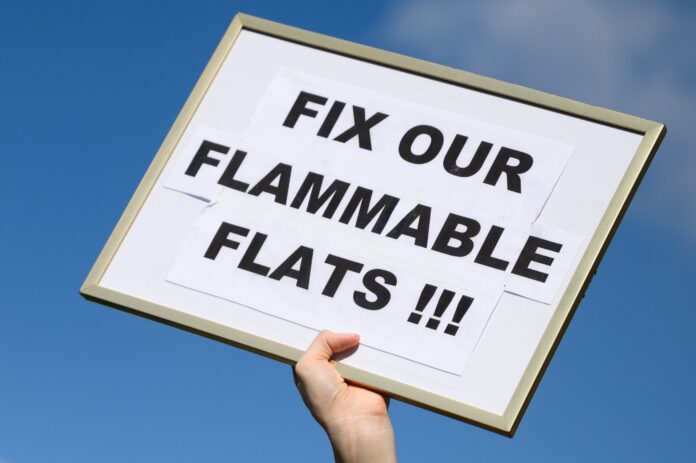Homeowners in shared ownership properties deemed to be unsafe due to cladding or insufficient fire safety standards should be able to sublet their homes after the housing minister wrote to lenders advising they be more flexible.
Shared ownership homes delivered through the Affordable Homes Programme currently face subletting restrictions, which are limited in all but “exceptional” circumstances. The restriction is in place to prevent homes built with public funds from being used for commercial gain.
However, the Government has now amended its grant funding guidance to make it clear that issues of building safety should be treated as an exceptional circumstance.
This will allow shared owners to sublet their homes with the agreement of their freeholder but mortgage lenders also need to give permission, something they have been slow to do.
Consequently, housing minister Christopher Pincher wrote to mortgage lenders encouraging them to accept subletting applications from affected shared owners.
More from Property and Mortgages
To reduce the costs involved, Mr Pincher also requested mortgage lenders consider extending the period a shared owner can sublet their home before needing to convert to a buy-to-let mortgage, and he asked lenders to waive any premium associated with the extension of the consent-to-let period.
In identifying the Government’s renewed approach to building safety, Mr Pincher highlighted four key principles.
He said: “We must take a proportionate approach in building assessment overall.
“Too many buildings are being judged to require expensive remediation or mitigation works, and leaseholders are being trapped by an over-cautious approach that goes beyond what we consider necessary.
“We must protect ordinary leaseholders, and guarantee that no leaseholder living in their own flat will pay a penny to fix dangerous cladding.”
Mr Pincher reiterated the Government’s recent stance that the industries at fault must pay.
“Those who built and contributed to our stock of unsafe buildings, and those who continue to cut corners in building safety, must pay to fix defects instead of taxpayers or leaseholders,” he said.
More from Property and Mortgages
“And we must hold to account those individuals and companies who have, and continue to, knowingly put lives at risk.”
Mr Pincher told lenders that immediate steps should be taken to support the affected shared owners who are currently facing restrictions.
“I understand that you will need to assess your organisational risk profile when considering subletting requests from shared owners,” he said.
“I also appreciate you will need to consider how waiving the 1 per cent annual premium over the course of a consent-to-let period aligns with your responsibilities under competition law.
“I do, however, hope that you appreciate the position that the affected shared owners have found themselves in with regards to building safety through no fault of their own, and that you will make every effort to approve their subletting requests.”
The letter follows Michael Gove, the Secretary of State for Levelling Up, Housing and Communities, announcing on 10 January that the Government had reset its approach to building safety.
Under the new plans, wealthy developers and companies would be forced to pay to fix the cladding crisis, with harsh penalties issued for those who fail to act.
Mr Gove assured no leaseholder living in their own flat will have to pay a penny to fix unsafe cladding, whereas under previous plans the bills would have been levied on leaseholders.
The industry has been given two months to agree to a financial contributions scheme to fund the new plan otherwise, if necessary, the Government will impose a solution in law.
Additionally, a new team is being established to pursue and expose companies at fault and to force them to shoulder the burden of making buildings safe.
Mr Gove said: “More than four years after the Grenfell Tower tragedy, the system is broken.
“Leaseholders are trapped, unable to sell their homes and facing vast bills.
“But the developers and cladding companies who caused the problem are dodging accountability and have made vast profits during the pandemic whilst hard working families have struggled.”
More on imoney
He confirmed the previous proposals for loans and long-term debt for leaseholders in medium-rise buildings would be scrapped, while the Government would aim to bring in new leaseholder protections into law through the Building Safety bill.
Mr Gove concluded: “And we will restore much needed common sense on building safety assessments, ending the practice of too many buildings being declared unsafe.”
Dame Judith Hackitt, who chaired the Independent Review of Building Regulations and Fire Safety, welcomed the plans, noting they will provide “great relief” to leaseholders who have felt “trapped” in their current predicament.
Dame Hackitt said: “Those who caused the problem now need to step up, take responsibility and show some leadership.
“This problem has gone on for too long and we need a rapid solution, not months of debate and negotiation leaving innocent leaseholders in further limbo.”
Credit: Source link










